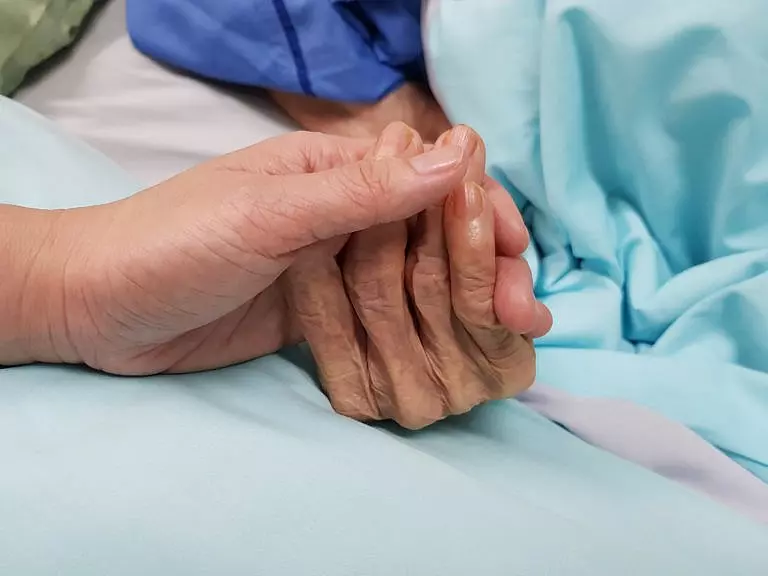A health care proxy is a legal document in which you appoint another person to make medical decisions for you if you are unable to do so. Although it may be hard to conceive of not being able to participate in your own health care decisions, such situations are by no means rare, even among young people. In the case of children, barring extremely unusual circumstances, parents will make decisions about their offspring’s care, but what about adults?
Even young adults can be severely injured, have a serious medical event (e.g. a heart attack or aneurysm), or become very ill very quickly. If you are thrown into such a situation, you are likely to be incapacitated to the point that you can’t think clearly or even express yourself at all. You may be unconscious, heavily medicated, or undergoing surgery. In such cases, it is crucial to have someone you have thoughtfully chosen to speak on your behalf, someone you deem capable of deciding whether you should have a particular medication, experimental treatment, or (perhaps radical) surgical procedure.
No doubt you have questions about how a health care proxy works, how it differs from other proactive healthcare documents, and what issues you should consider when choosing such an important person. You will most likely discuss this with one or more members of your family, but you will also need the sage advice of an experienced estate planning attorney.
In Southeastern Massachusetts and Cape Cod, Surprenant & Beneski is a well-respected estate planning law firm; each of its skilled professionals is prepared to answer all of your questions and discuss your health care proxy decision-making process with objectivity and insight. Below are some questions you may find helpful in clarifying your thoughts on this important subject:
What is the difference between a health care proxy and a living will?
While both documents deal with healthcare matters, an Advanced Directive (Living Will) is a more general statement of what you want or don’t want done to keep you alive when you are receiving end of life care. It is a directive to doctors, hospitals and other healthcare facilities, as well as to your close family and friends. In a living will, you may state that, for example, that if it becomes necessary, you do or don’t want a feeding tube inserted to prolong your life. You may also advise others that you do or don’t want to donate any of your organs.
A health care proxy, on the other hand, as noted earlier, designates someone in whom you have deep trust to make decisions on your behalf at the moment a specific decision must be made. You give this person the right to decide for you, when you are not able to decide or speak for yourself, what should be done. In many cases, of course, there are no options and doctors will just do whatever is necessary, but in some cases, that clarity does not exist. It is then that a health care proxy becomes essential.
It should be noted that in Massachusetts, a Durable Power of Attorney is used to designate a person to handle only your business matters, not your healthcare.
Can my health care proxy override my decisions if I’m conscious and capable?
Absolutely not. Your health care proxy only takes effect if and when you are unable to communicate your wishes. Your state of mind will be determined by your attending physicians. Hopefully, it is reassuring to you to know that you can always revoke the signed document orally and that you never lose the right to sign a new health care proxy.
How should I choose my health care proxy?
Many factors enter into the process of deciding whom you should appoint as your health care proxy. Your knowledgeable estate planning attorney will doubtless ask you to consider these estate planning advice on how to choose:
- Whom you trust to make possibly life-altering or life-or-death decisions relating to your health
- Whether the person closest to you has personal or religious views that differ from your own that might make it difficult for him or her to follow your wishes
- Whether or not you might ever choose death over a life of unbearable pain or lack of consciousness
- Whether there is anyone you would want your health care proxy to consult before making a critical decision about your health (relatives? a member of the clergy?)
- Whether there is anyone you would specifically want to be left out of such a conversation
- Whether you can imagine a situation in which you would trust your health care proxy to use her or his own judgment, even if it means disregarding your stated wishes
More than likely, as you think about the questions above, other questions concerning your health care proxy will come to mind. This is all to the good. Why not jot them all down and make an appointment to discuss them with your estate planning attorney?
©Surprenant & Beneski, P.C. 35 Arnold Street, New Bedford, MA 02740, 336 South Street, Hyannis MA 02601 and 45 Bristol Drive, Easton MA 02375. This article is for illustration purposes only. This handout does not constitute legal advice. There is no attorney/client relationship created with Surprenant & Beneski, P.C. by this article. DO NOT make decisions based upon information in this handout. Every family is unique and legal advice can only be given after an individual consultation with an elder law attorney. Any decisions made without proper legal advice may cause significant legal and financial problems.
